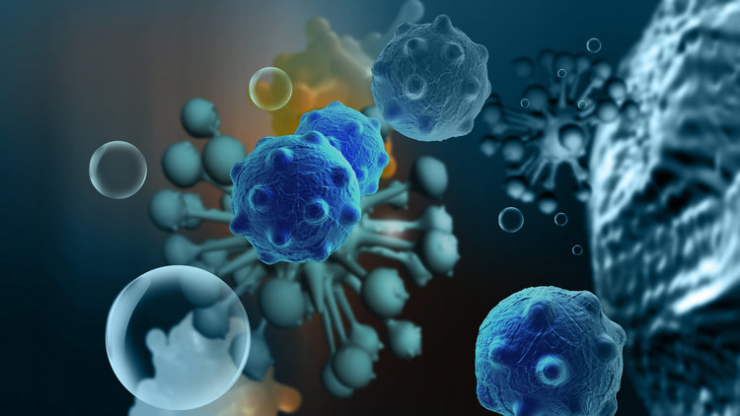Lion Biotechnologies (NASDAQ:LBIO) is establishing a leading position in immuno-oncology through its tumor-infiltrating lymphocyte (TIL) technology to deliver personalized oncology therapies to patients with unmet medical needs.
“In an era of personalized medicine, our autologous cell therapy is as personalized as it gets,” president and CEO, Maria Fardis, says in an interview with BioTuesdays.
In the early stages of cancer, Dr. Fardis points out that white blood cells migrate to the tumor and launch an attack. However, the effect is usually short-lived because cancer adapts to evade immune detection and suppresses the body’s immune response.
“Our TIL technology is designed to overcome the immunosuppressive effects of cancer, while leveraging and enhancing the power of TILs to treat, and potentially cure solid tumors,” she contends.
Dr. Fardis explains that Lion’s technology is based on TILs isolated from a patient’s tumor following resection. The cells are expanded to billions ex vivo, away from cancer’s immune-suppressing effects.
The highly activated, potent TILs are then infused back into a patient, who has been preconditioned to remove all suppressive influences. Patients also receive one-to-six doses of interleukin-2 (IL-2) to help TILs multiply further, engraft and activate, to attack the tumor.
Unlike many cancer vaccines which target preselected tumor antigens, Dr. Fardis says Lion’s technology is based on a patient’s own TILs, which naturally target antigens specific to those of a patient’s tumor.
“Consistent response rates in treatment naïve and refractory melanoma patients who have failed other options, including checkpoint inhibitors, have been reported,” she adds.
Based on an adoptive cell therapy regimen developed by Dr. Steven Rosenberg, chief of surgery at the NCI, Lion’s TIL technology is currently in use as a physician-sponsored combination treatment for metastatic melanoma at NCI, MD Anderson Cancer Center and the H. Lee Moffitt Cancer & Research Institute.
Lion is also enrolling patients in a company-sponsored single regimen Phase 2 TIL study in refractory metastatic melanoma and is in startup for two Phase 2 trials in cervical and head and neck cancers.
In 2016, there were 76,380 new cases of melanoma, resulting in 10,130 deaths; in cervical cancer, 12,990 news cases and 4,120 deaths; and in head and neck cancer, 48,330 new cases and 9,570 deaths.
Dr. Fardis says the company also has partnered with Karolinska University Hospital in Sweden to study a slightly different TIL technology. Phase 1 studies at Karolinska are scheduled to begin by end of 2017 in glioblastoma and pancreatic cancer.
A recent Phase 2 trial with 101 patients with metastatic melanoma conducted by Dr. Rosenberg at the NCI confirmed that TIL treatment was associated with high, durable objective response rates, including patients who were refractory to checkpoint inhibitors.
Specifically, the data demonstrated complete responses in 24% of patients, with 23 of 24 complete responders showing durability of 30-to-47 months. In addition, the overall response rate was 56% and overall survival was approximated 80% at 12 months.
Dr. Rosenberg’s NCI study also observed a complete response rate of 29% in 34 patients that had failed therapy with checkpoint inhibitors.
Dr. Fardis notes that toxicities in the study were largely associated with the known side effects of nonmyeloablative chemotherapy or total body irradiation and administration of a high dose IL-2. “We concluded from the data that there is no real benefit in patients receiving high amount of radiation as judged by response and overall survival.”
Recent data from a randomized Phase 2 trial in 101 patients with metastatic melanoma confirmed TIL treatment was associated with high, durable objective response rates, including patients that were refractory to checkpoint inhibitors.
Dr. Rosenberg’s data with second-and third-line metastatic melanoma patients, or those heavily pretreated, demonstrated that 19 of 20 complete responders were still alive at seven years to more than 10 years after TIL treatment, without needing further therapy.
Lion is currently enrolling patients to assess the safety, efficacy and feasibility of an adoptive cell therapy based on an autologous TIL product, LN-144, followed by IL-2, in the treatment of patients with refractory metastatic melanoma.
The trial will include two additional cohorts of patients: one receiving fresh cells from the company’s existing manufacturing process and a second receiving frozen cells from a manufacturing process that has been shortened to approximately four weeks from six.
Dr. Fardis says Dr. Rosenberg at the NCI also studied an HPV-targeted TIL treatment with nine cervical cancer patients, with data showing one partial response, with a duration of response of three months, and two complete responses, who remained a complete response at the time that a manuscript was being published: one was at 15 months of follow up and one at 22 months.
Lion has initiated its own TIL Phase 2 trial in cervical cancer patients and another Phase 2 trial in head and neck cancer with its LN-145 drug candidate. Future studies in lung, bladder, breast and pancreatic cancers, and glioblastoma could be either company-sponsored or conducted through collaborations, she adds.
In terms of future R&D, Dr. Fardis says Lion is looking at selection of more specific TILs; whether lower cell numbers administered to a patient will generate a response; and further shortening the duration of TIL manufacturing. “Any of these would create new IP,” she adds.
In addition, Lion is looking at genetic engineering of TIL therapy to modulate certain additional biomarkers, and “what else we can give a patient pre-TIL and post-TIL treatment to help them get a response.”






